Freelance Landscape Design
Still struggling with my career options.........visited Cornell yesterday and came away with an overwhelmed feeling - very nice Landscape Arch program but maybe too intensive for this 40something year old! My background is this....I have a Business degree, a Hort degree and love doing Landscape Design. I have done some freelance work for family and friends and enjoyed that but didn't get paid much (if anything!). Contemplating my options of school vs. starting my own business doing residential landscape design. I understand the pitfalls of doing design work and not doing the installs. My question is this - are any of you doing this? I thought I could appeal to the do it yourselfer who needs a plan but would do the work themselves, or the person who wants a plan designed for them not one designed by the company who wants to make big bucks off their install and who designs the job accordingly. I don't want to work 80 hours a week doing this - I want a low key business where I can serve my clientele well and give them a high quality product for a reasonable price. Thoughts???
Comments (26)
gardengal48 (PNW Z8/9)
17 years agolast modified: 9 years agoLavender, my design business is approximately 80% for DIY'ers and the remaining 20% professionally installed, so yes, there is a need for this type of design work. Discussion on both this and the Landscape Design forum has lead me to believe that this is a bit of niche market and may not be as widespread a phenomenon everywhere else. I live in an area that has a lot of very active gardeners and this type of approach appeals to many of them - they are more than happy and able to do the work, but need guidance in developing a plan and selecting plants.
There are some drawbacks to this type of design work. I seem to generate as many planting plans as actual "designs", as the distinction seems to get lost - to a good many, the plants are the design. And there is never any guarantee your design will get implemented in a timely manner, if at all, and that it will adhere to the plan. This is definitely not the type of design practice for anyone with a strong ego and a need for ownership or control of the design. And the compensation for plan-only designs is not huge in the overall scheme of things.......it would be difficult, if not impossible, to rely on this is a sole means of income. You would need to turn over a great many designs (and work those 80 hours a week) to make a living wage. I do it on a part time basis to supplement income from a related occupation and still find myself putting in 20-30 hours a week just to keep up.
But it is possible and it does offer its own rewards. One of the biggest advantages is that this type of design work seems to foster a much more collaborative effort between the designer and the client, compared to those entirely professionally directed projects where the client sits back and waits for a fait acompli. Because the client(s) are very actively involved in the design process, plant selection and implementation, there is a high degree of ownership on their part, much more so than I see with my designs that are professionally installed. And once they have completed the design installation, their sense of accomplishment and satisfaction is extremely gratifying and a joy to behold.
Establishing a freelance design business is not the easiest thing to do. You still need all the skills and knowledge as does a designer associated with a design/build firm and experience in the installation of all the technical aspects of landscape design doesn't hurt, either. And developing a client base takes time, unless you have a regular source of referrals. You do need to form associations with reputable contractors who can do the installations of those designs not for DIY'ers as well as a good number of specialists to lend a hand in those areas the clients feel are beyond their skills and abilities - masons, carpenters, irrigation specialists, etc. And developing a portfolio is very tricky.......since you never know exactly how a design will turn out once the clients get done with it. Several of what I consider to be my best design projects have never made it to my portfolio, as the clients took some rather unfortunate liberties with plant selection that totally blew off the integrity and character of the design. It happens.
Related Professionals
Elwood Landscape Architects & Landscape Designers · Marco Island Landscape Architects & Landscape Designers · West Chester Landscape Architects & Landscape Designers · Goodyear Landscape Contractors · Arden-Arcade Landscape Contractors · Danvers Landscape Contractors · Ellicott City Landscape Contractors · Harrisburg Landscape Contractors · Live Oak Landscape Contractors · Metairie Landscape Contractors · Morrisville Landscape Contractors · North Canton Landscape Contractors · Paso Robles Landscape Contractors · Raytown Landscape Contractors · Grand Rapids Driveway Installation & Maintenancelaag
17 years agolast modified: 9 years agoDo it yourselfers are not a good market in my opinion. The reason why is simple. They are do it yourselfers for one or both of these reasons - they want to save money / they want to do it for themselves. The money savers don't want to spend on a piece of paper that you drew, so they willl not pay enough for you to make a living. The "for themselves" folks are more likely to look for help building it than designing it. If they did feel the need for a design plan, they would want something that they felt was beyond their ability to do which would need to be from a very established source for the type of personality who believes they can do everything. Does that make sense. If it doesn't. test the market and it may after a while.
Working for homeowners who want a designer who is working for them is a much better place to go. But, you have to know that it means that the homeowner wants someone who they feel that they can trust is better qualified than the contractor. That means you have to have well established clout in the design field before you will make a client very comfortable that your knowledge over rules that of the contractor. It also means that the client will need help making sure that the contractor is doing the work the way it is intended to be done. Overseeing a contractor is a completely different skill set than designing and can also be very intimidating. Make sure that you are comfortable in telling a rough personality that he is not doing something right and he needs to change it at his expense because if you can't, the benefit of using a more trusted designer is completely lost to the homeowner.
If you want to make a living in the landscape design business, the one notion that you have to accept is that you can not make enough money while staying in the bubble of dealing only with clients and a plan. It simply is of little value unless the job has completion built into it.
Everyone wants to be a landscape designer. That makes us a dime a dozen. People who don't want to spend a lot are worried about an extra $50 added to the whole job if they use a slightly higher grade of mulch. Those folks don't want to spend a lot of money on a piece of paper. You can't produce the plan without investing a lot of hours in it.
Let's say $50,000 a year is making a living. That is just about $1,000 a week. Can you get design jobs that you can do in a week that will sell for $1,000? Can you get 50 design jobs in a year? Maybe you only need $25k a year. Can you get 10 design jobs that will pay $2,500 each? Twenty five at $1,000, or 50 @ $500? Who gets 50 inquiries a year for design work (design/builds do). Any way you look at it, it is not easy to sell enough plans to make a living.
The people who do have the money are the market that has to be tapped if you are to make a living without building the landscape. The problem for up and coming designers is that these people like to pay for sure things. They have BMWs, Benzs, and Lexus because they know what they will get for the money before they buy it. It is no different with landscape design. If they hear about you, see yor work at a friends house, and know that you have been successful at producing what they want, they'll pay for it. They might try to get you to reduce the price, but if they want you, they will eventually decide to pay. But, they not only have to like what you do and what you charge, but they have to like it more than every other person out there who is looking to do the work. All it takes is one person who has a better portfolio, or some other edge and you are out. That is a lot of people if you are working your way up. If you show up and I or anyone else shows up show up, only one of us is walking away with the job.
There is no practical reason why someone with the financial means will want to buy something unheard of on the lot when there is a Benz, a BMW, and a Lexus parked right next to it. It is just the way that it is.
You have to work to build a portfolio and reputation in the segment of the market that you want to continue to work in. You can work independently in the lower end of the market, but will not build a portfolio that will have the stuff that will get you into the high market. You can go to work for a design/build that is already in the market that you want to work in, but it will not pay a lot and you will have to work within their box. I highly recommend the latter. It will give you lots of experience, you can build a portfolio of built work in the right market, and you will learn a great deal along the way. You were prepared to pay for school. Why not get paid for school by using this method? It does take adopting a subordinate attitude, which is not easy for us designer types, or they won't want you around. This is the way for you to go because of your prior education and your age (got my degree at 35, so I know).
It is so much easier to leave a high profile high end design job with a portfolio, connections, and experience and stay in that market than it is to build up from designing for DIYers. And much quicker than a degree and interning in the back room of a big design firm for 2 years.
The other alternative is to get a pickup and design only what you are capable of building like most landscape designers. But, once you start, you don't move up the market very quickly that way.
gardengal48 (PNW Z8/9)
17 years agolast modified: 9 years agoAndrew and I have had this discussion a number of times :-) It is the difference between two distinct types of client bases, perhaps engendered by the different lifestyles of the two coasts. The market may be slim, depending on location, but it does exist. And my experience has found that there does exist a significant client base who are willing to pay, and reasonably so, for just a piece of paper.
High-end landscape design is not necessarily the goal of every landscape designer and there is a huge market out there for which high-end designs and the costs associated with them is simply not appropriate. But that does not mean that producing plan-only designs is limited to those of modest means. I've turned over enough $$ plans for multimillion dollar properties to dispell that myth. But these are not my bread and butter jobs and I'd hate for you to get the impression that you will land these plums without spending a lot of time and effort in the process.
The rest of Andrew's comments regarding income are right on. This is not the profession or the business tack to take if monetary considerations are paramount.
nwnatural
17 years agolast modified: 9 years agoOne thing that gardengal and I have in common is, we both work at nurseries. That is a great place to find clients and the nursery refers me as well.
Why not supplement your starting income and work part time at your local nursery? Thy start hiring in February.
nandina
17 years agolast modified: 9 years agoInteresting and necessary ideas above for you to ponder. Have you thought about beginning by advertising your area of expertise, namely knowlege of plants? Sell yourself as a Garden Consultant, charging on an hourly basis portal to portal. There is a strong demand for this speciality. The majority of homeowners have no idea which plants to use for foundation plantings, or how to combine colors, how to hide the utility boxes, etc. This type of quiet consultation will lead to design requests as you work with each customer. It is sort of a backdoor way to achieve your goal as you build confidence as a designer. And the suggestion to work at a nursery for awhile is a good one.
laag
17 years agolast modified: 9 years agoIf you are to make a sustainable living doing design only, the high end market is essential - not because of ego, but practicality.
It is a different story when you do this part time, especially if it is in conjunction with a job that is in a related field. The other job covers all of your living expenses, insurance, and benefits. Five hundred extra dollars a month is worth the extra effort, but it takes Five thousand a month to cover a good income and benefits that you have to pay for yourself - that is consistently for twelve months of the year. The reality is that there are busy times and down times. That means doing more for some of those months to offset the down months.
How many designs can you expect to sell in a year?
How many can you actually do in a year?
What is your idea of the scope of a "normal" design?
Is it a planting bed? A planting bed and walkway? Is it all of the planting beds around the house? Is it all of that and where to clear the woods to begin the landscape? Does it include all of that and laying out the driveway? Does it include grading and retaining walls? Siting the actual house and influencing the design of the architecture? What about a pool or going through regulatory boards? These are all worth vastly different amounts of money.The high end market is essential
There is more competition in the lower end which = lower closing rate on sales call, less money for each sale, more referrals needed to close on the same amount of jobs, more time setting up appointments, driving to appointments, meeting with clients, measuring sites, writing proposals, and doing base plans before you actually design anything. There is also a tendency toward saving individual plants or transplanting some. That adds a lot of time to a design in collecting that inventory and designing around them (usually with mixed results). You have a lot of landscapers, young and established, who can afford to invest design time in the small job design market in order to land jobs selling plants and labor further driving down the cost and increasing competition.
Five hundred dollar garden designs would take 100 to gross $50k. Does that sound practical? Can you sell plans for $500? If you can, who are you selling them to? How long does it take you to complete one including meetings, measuring, and run around time? Can you do 100 plans in a year?
Can you sell 50 at $1,000? To whom?... you are climbing up the market.
20 @ $2,500? .... I did better than that when I was working design/build and I used 80% of my time doing other work for the company. It was not because of me so much as the company was established, their clients were very wealthy, I closed design sales at a very high percentage because of the company's reputation, and they did not work outside of that niche. The high end market is essential I could not sell more because there were not more referrals. It had nothing to do with not having time to make sales calls or do design work. There is just not a long line of people looking to spend tens to hundreds of thousands on landscapes and thousands on plans to go with it.
It is almost an all or nothing proposition if you want to make a living doing design only. The balance between what you can charge for a plan (and still sell it), how many plans you need to sell to make a living, how many prospects there are who value the plan equally to what you need to charge for it, and how many hours you need to spend to complete the job will lead you to the same conclusion if you try to make a full time living doing it. The high end market is essential
If you make your money by building what you design, it is a different story.
Who among us does make a sustainable living in design only - not me (I do design only, but most of it is civil site planning, so I don't think that fully counts), not gardengal (also works in a nursery), and not anyone who is doing design/build (like I used to) or holding another job.
I do have a landscape architecture office that I run outside of my full time job.
lavender59
Original Author17 years agolast modified: 9 years agoSo much invaluable information - I appreciate it greatly - it gives me much to contemplate that is for sure! I am fortunate enough that I do not need to make a living to support my family - my husband has a great job with excellent pay and benefits - I am just trying to find my niche where I can fit in to this industry and work in or have some type of reasonable landscape design business. I am not out to do 1000 designs a year but am interested in starting slow, small and developing the talent and contacts I have. This is certainly a great and helpful forum for the newbies like me! I do appreciate any and all advice.
txjenny
17 years agolast modified: 9 years agoLike a lot of others on this site, I don't make my living only on design, although it's what I prefer to do. I own my design/build company with projects ranging from small front yards to multi-million dollar homes, container plantings and design for the DIYer. I've also recently begun to freelance design for a larger design/build company--it's a great relationship between us--they will pass on to me the small jobs that they won't take and I'll have them install large projects that are too big in scope for me! and in the meantime, they pay me $50 an hour to design for them so they can pull in more business.
This all took about 5 years to build up, so it's not overnight and i'm not rich, but the consistency of income has greatly improved and I've fined-tuned what I do well so I can spend more time on it and still pay the bills.
You can do what you want to do, just start out slow and don't grow too quickly. Know what you do best and focus on that. be open to taking on some projects that maybe aren't your cup of tea in order to pay the bills so that you can do all the design work you really love.
BTW, I found some of my best consistent jobs on craigslist--not for everyone, but it worked for me!
watergal
17 years agolast modified: 9 years agolavender59, do you have any interest or experience with indoor tropical plants? Interior landscaping can be a rewarding field - there is design and maintenance work to be done. It's an easy field to get into with minimal credentials, steady year-round work, a little less physical usually than outdoor work. Many companies do outdoor containers and holiday decor for their clients too. I started in my early 40's doing indoor plant maintenance and really like it (the "office plant lady" kind of thing). Email me if you want more details. You'll never get rich but if you're good with plants, you can make a decent living and enjoy going to work every day.
rufusthecat
17 years agolast modified: 9 years agoLavendar59. Don't be discouraged! I think there are a few ways to approach what you are considering. I changed careers at 40 from business to Landscape Design and was working quite successfully in the Northern California market...until we recently moved to NY - but that is another story!
1) There are excellent Landscape Design and Landscape Architecture certificate courses through University extension departments in different parts of the country. UC Berkeley, UCLA, Columbia, New York Botanical Garden are a few. They are often taught by landscape architects and will give you the necessary graphic skills which are a huge differentiator between professionals and amateurs who want to be professionals. Knowing AutoCAD is a plus both for speed and professionalism.2) Ally yourself with both a nursery and some local contractors. This worked very well for me.
My track was this:
-Finished LA program at UC Berkeley Ext.
-Worked at large independent nursery concurrently. (My advice: pick a high end, independent, horticulturally literate nursery - not HOME DEPOT - to learn from. Pick one that is ok with nursery people developing design relationships outside of work. Some are and some definitely are not.)
-Worked for a year as a designer at a Design/Build firm in a high end, new home market. Average install was over $150K up to $300K. Worked along side a Landscape Architect who I learned a ton from, mostly about designing for landscapes to be BUILT, also a distinct difference between amateurs and professionals! Using correct radii, measurements, materials, etc. Then I went out on my own and eventually hooked up with 2 busy and successful contractors who tried me out for a couple of small designs, liked my work and gave me more. When I left CA I could have hired someone to assist me as I was quite busy. I charged around $2500 per plan.Please feel free to email me if you want to talk more about making your dream happen. I am all in favor of people pursuing their dreams because it CAN be done, it will be wonderful when you do it and you'll probably have to make a few compromises along the way, but it's worth it!!
philomena
17 years agolast modified: 9 years agoI'm somewhat in that same boat - early 40's, and wanting to make a career switch from IT to garden design, but just not sure if I can work up the nerve and also the financial security to do it. I support myself, so have no other source but me for income and insurance coverage, so trying to figure out a business plan and general course of action has been daunting. After learning by trial and error once I bought my own home, I've been taking garden design classes since last year, and doing (free)work for family and friends, to help build up some referenceable (is that even a word ?! :-) )gardens.
Per some of the posts above, I would need a net annual income of about 45K to pay the bills - I haven't even gotten as far as figuring out how to determine what type of gross that actually means if I am self-employed. How do I go about learning this side of the business ? Do I need to talk to lawyers and/or accountants ? And does it sound even feasible to be able to earn that type of income the first year or so ? Or is that something to ramp up to ? I would certainly be planning on doing design, installation and maintenance of gardens, not just the design - I'm not averse to getting my hands dirty :-)
nwnatural
17 years agolast modified: 9 years agoI'm in my third year of business. Doing design, installation, consultations, and very minimal maintenance. I work alone and I'm averaging 2-3K (take home)a month and working 2 days a week at a nursery. I am working my butt off, especially April to July.
I could have made better money the first year if I had bid a little better and if I stopped working for friends and family who only wanted deals (and I felt obligated to make deals for them). I'm grateful for the experience and the portfolio that I made that first year, plus who better to practice on. It was a good learning curve and hopefully, you have some money saved. They say you won't make much money your first year and they were not kidding!
rufusthecat
17 years agolast modified: 9 years agoOne thing I would recommend is to join your local APLD (Association of Professional Landscape Designers) and try to attend a conference. This is a great source of feedback, opportunities, motivation and info.
artcmigala
14 years agolast modified: 9 years agoHow did it work out?
I started my freelance gardening business a few years ago. I work part time, my own schedule. It is a labor job, but I enjoy it. I do not make enough $ to support myself/family. It is a lot of work for not a big income. I read a book about starting a gardening business that had useful information. The author is Paul Power and you can get it through Amazon. I think it's important to establish a mission statement so that during the difficult times you can review it and remember why you do what you do.
bonsai_audge
12 years agolast modified: 9 years agoFantastic link there, Marcinde. ArchDaily had a similar discussion regarding the merit of architectural competitions. One of the major arguments in favour of competitions was that innovations would arise that could further the profession as a whole. I'm not sure if we would see anything as progressive resulting from a factory-oriented design process.
- Audric
marcinde
12 years agolast modified: 9 years agoAudric - I guess the big difference is that from what I've seen, most architectural competitions are large-scale commercial or municipal projects where the entrant is providing a conceptual design that is refined if they're selected for the (usually significant) commission. What this site appears to be offering is the promise that a gaggle of gullible designers will provide an accurate, buildable plan that will work.
And they talk about the site analysis phase like it's something so easy even a caveman could do it. The actual measuring isn't rocket surgery, but part of the value of involving professionals is that we see things the homeowner wouldn't think to look for. If a homeowner sends me dimensions on a survey plat and 6 photos, that is all the information I have about that property. I'm pretty good, but what I could create based off that data would pale in comparison to what someone with boots on the ground could accomplish.
Not to mention that the whole "draw me a pretty picture, monkey, and if it's good I'll throw you a peanut" aspect is offensive.
Oh, and looking at the designs - there's one in particular that regardless of where it's built and what material is used, it will be a failure point. Sure does look sexy in plan, though.
Township Design
8 years agoHey guys, so its been a while and I wondered what became of this topic?
Did any of you go on to start your own landscape design businesses? Did you find it to be difficult? Did the market crash swallow up your drive?
I am interested to hear everyones thoughts as I too decided this path and have loved every minute of it. Sure its been tough but man do I have some stories.
Drop me a line or respond here as I would love to here how all this great advice went.
david@townshipdesign.com
gardengal48 (PNW Z8/9)
8 years agoDavid, this thread is 10 years old and most of the original participants have long vanished from the scene. But I've been doing free-lance garden design for almost 25 years now and enjoy it just as much as I did when I first started.
btw, I've never developed a website nor advertised - all my business comes from referrals or word of mouth and there is more than enough to keep me busy year round.
Township Design
8 years agoThanks for sharing gardenga. I hope everyone hasn't vanished, that would be sad. Glad to hear your business is doing well. Wow since 1991, thats impressive.
If you don't mind me asking did you pursue a business coach or a popular book before starting your business? I ask because I see this as a much needed resource in our industry today and feel if most had a solid foundation to start from, we might be having a different conversation.
Your thoughts would be greatly appreciated, since you are an old pro of course ;)
gardengal48 (PNW Z8/9)
8 years agoWell, you got the "old" part right, anyway :-)
David, this is a second career for me. I have a corporate background and actually financed small to very large businesses so have a pretty good understanding of the business world. And when that world started to implode due to the economy and with some family issues to attend to, I made a decision to switch careers.
There wasn't any question as to what field I'd pursue - I had gardened all my life, was a plant collector, redesigned my own garden (more than once!) and already had a strong design background (BArch degree) so I went back to school and got degrees in Ornamental Horticulture and Landscape Design.
Most of the designers I know (the successful ones, anyway) have followed a similar career path - some early work experience in whatever field then returning to college as 'mature' students to pursue formalized training in landscape design. I attended an excellent hort school in my area and in addition to the theoretical and technical aspects of the profession, they put a lot of emphasis on the practical aspects as well - business courses, costing and estimating, presentation skills, etc. These were very popular classes and attended by the full scope of hort students - turf management, landscape construction, nursery/greenhouse management and design.
I think it would be a very hard row to hoe to enter this profession with no formalized training at all, whether it be in a college or trade school setting or as an apprentice to an experienced business owner. I know it can be done - the contractor I work with closely established his extremely successful business without specific training - but it requires incredibly long and hard work for little financial return before it starts paying off with more and higher end clients and better, more challenging projects. Nothing replaces practical, hands-on experience but you can take a big short cut by smoothing the way with a formalized, full service, training/educational program.
rhizo_1 (North AL) zone 7
8 years agoI totally agree with gardengal. I'm also a (retired) professional with a successful career behind me. I owe some of that success to my education and I've always been mindful of that.
There are stacks of "How To" books about starting a profitable nursery, including some that are quite excellent. There are also plenty of courses and coaches, and consultants, readily accessed via computer.
But the "solid foundation" you speak of is a well rounded education, not a coach or a manual.
Township Design
8 years agoThat's great to hear and I am glad you have experienced such a great journey gardengal48.
My journey has been similar to yours and I feel mainly successful due to my insatiable desire to learn. I agree that entering the industry without formal training makes it more difficult and tends to promote an sense of fear or a mentality of "am I doing this correctly" in those who try.
Success however is always seen through the eye of the beholder and I feel quite a few in today's demographic, even after a degree, feel like they need a bit more encouragement that they are on the right track and following a system that has worked for others.
This is where I see people like you and me coming in. I have been wanting to share my skills for quite sometime now and have been wondering the best way to do so. I find that there are a lot of questions out there on how to start a landscape design business but not a lot of single resources to do so.
What would your opinion be in me offering free material on how to start a business? Would this be something people would be interested in? A no nonsense guide if you will to share how its really done not just how the universities are teaching it. This in my opinion is long over due but I am just not sure if my biased opinion is getting in the way or if it would be helpful to share my knowledge in this manner.
Again thanks for sharing and I am encouraged that we even get to do this as a profession. Your feedback has been very helpful and I look forward to hearing more :)
Revolutionary Gardens
8 years ago@Township, just stop beating around the bush on all these old threads and make your pitch. I personally don't think a neatly packaged online infoproduct would be particularly useful for what you've described, in a roundabout manner over multiple threads, but I've been wrong before. Hit me. Let's see it.
If you're just testing the waters to see if it's worth your time to do it, a) I think you're fishing in the wrong stream here, and b) there are better ways to gather the info you want. Part of what I do is sales and marketing consulting so I'll give you a freebie. Consider where your target market - those with a love for landscape design but no practical design or business expertise - is hanging out. Create a persona or avatar and trace where that persona spends their time. Off the top of my head, I can identify two very distinct groups at the threshold of a design career. If you've spent any time around the industry you'll get an immediate lightbulb moment. If not... can you serve that community if you don't know them?
Township Design
8 years agoThanks for your advice everyone. Not sure what warranted @revos harsh words but I understand if he has other stuff going on in his life and feels the need to vent on "old threads" as he put it.
I am merely asking for advice from fellow professionals already in the market to see if anyone has seen a need for high quality material on starting a landscape design business? No bush to beat here just a simple question.
Not quite sure how @revo didn't understand what I meant from my posts but I thought his advice was helpful none the less and I appreciated his "freebie" as he called it.
Best of luck to everyone and I appreciate your time.

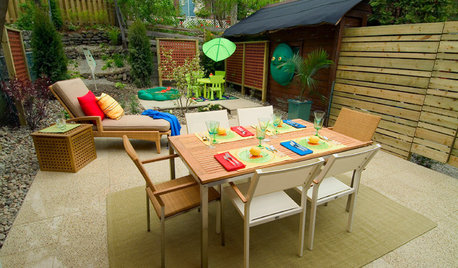
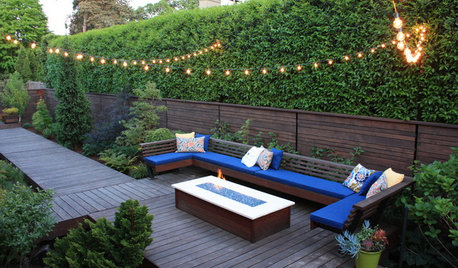
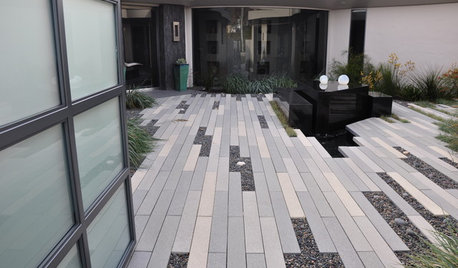
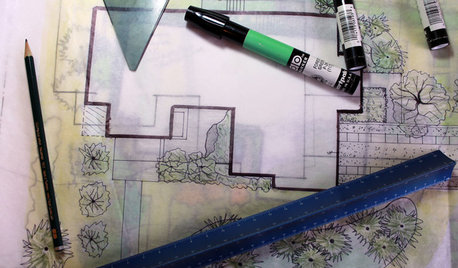
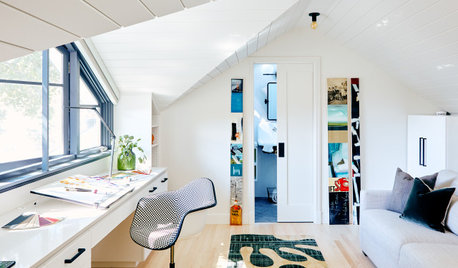
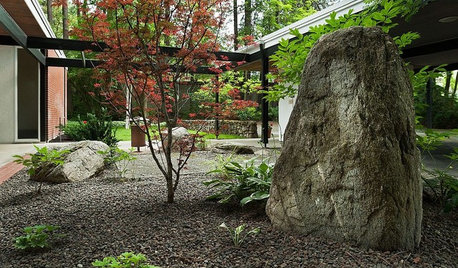
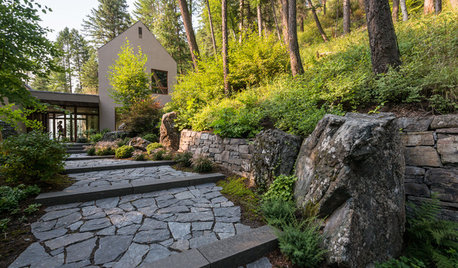
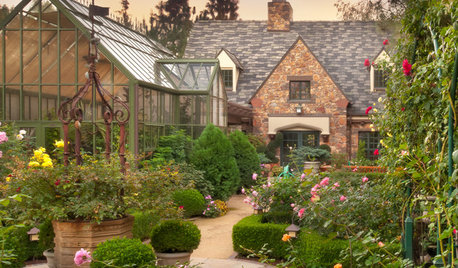






deeproots